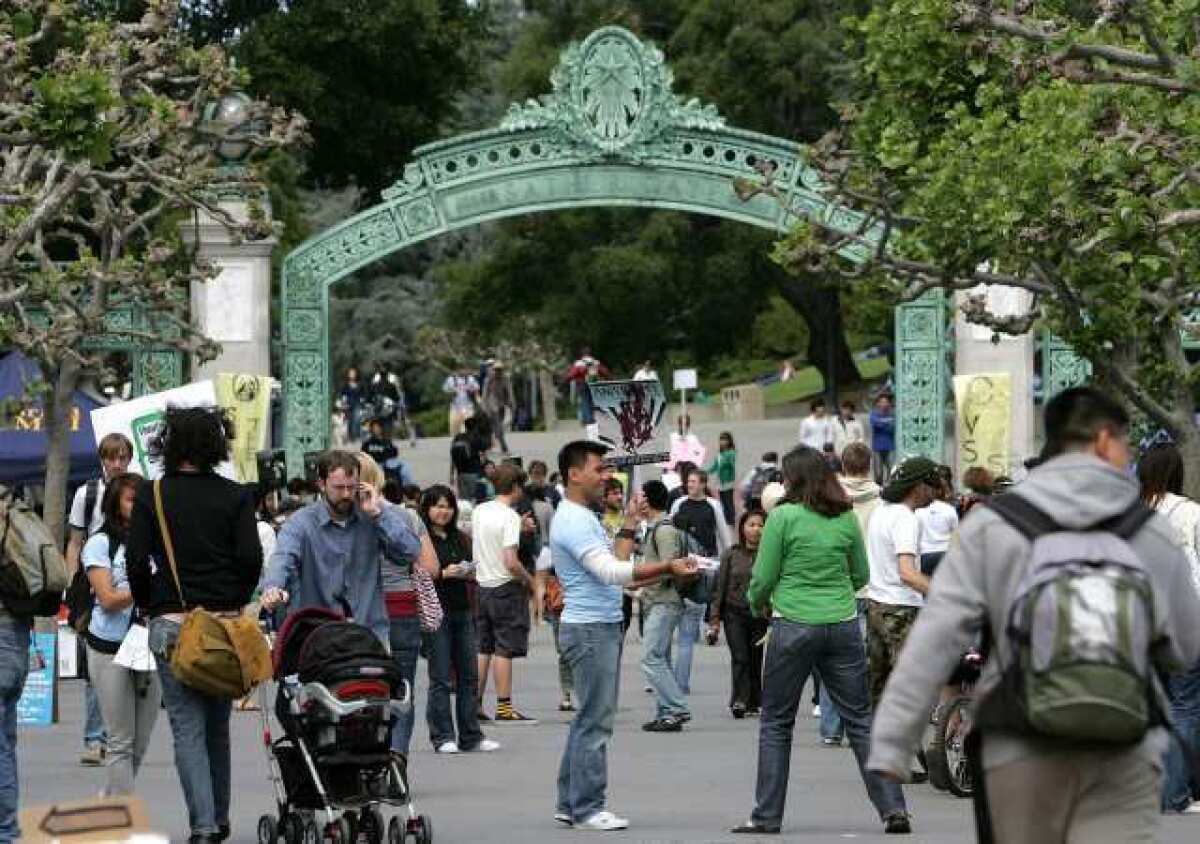UC Berkeley’s ‘hostile environment’ question

In the latest chapter of a long-running controversy over anti-Israel protests at UC Berkeley, the U.S. Department of Education has launched an investigation into whether Jewish students at the university are the victims of a “pervasive hostile environment” in violation of federal civil rights laws. Given the importance of free speech, especially in a university setting, the department needs to tread carefully.
The department responded to a request from lawyers for two recent Berkeley graduates who earlier had sued the university complaining about a “dangerous anti-Semitic climate” at Berkeley. In their letter, the lawyers alleged that the university’s actions “present a disturbing echo of incitement, intimidation, harassment and violence carried out under the Nazi regime ... against Jewish students and scholars in the leading universities ... during the turbulent years leading up to and including the Holocaust.”
Central to the complaint is an annual demonstration known as Apartheid Week, which features a guerrilla-theater-style simulation of a West Bank security checkpoint at which students dressed as Israeli soldiers and carrying mock assault weapons ask “travelers” whether they are Jewish. Those crossing the checkpoint are generally participants in the protest. In the past, though, other students were reportedly questioned. One Jewish student has alleged that a protester assaulted her with a shopping cart during Apartheid Week in 2010.
It goes without saying that the university should not -- must not -- tolerate physical violence on campus, nor should protesters be allowed to accost and insult individual students or block their way on public thoroughfares. There are plenty of laws and rules on the books to address such misbehavior. And if the university isn’t affording Jewish students the same protections from violence and harassment that other students receive, that is a fit subject for federal investigation and, potentially, penalties.
But can a state university really ban a public protest about a controversial political subject? Isn’t that protected speech, even if it’s offensive?
Volumes have been written about whether opposition to the existence of Israel or to Israeli policies amounts to anti-Semitism. In August, the Assembly passed a resolution urging universities in the state to combat anti-Semitism as defined by the European Union Agency for Fundamental Rights. That expansive definition includes “denying the Jewish people their right to self-determination, e.g., by claiming that the existence of the state of Israel is a racist endeavor” and “drawing comparisons of contemporary Israeli policy to that of the Nazis.”
The question that must be answered at the moment is whether events on campus such as Apartheid Week create an impermissible “hostile environment” for Jewish students, or whether such expressions of opinion -- offensive or not -- deserve the protections of the 1st Amendment.
In their request for a federal investigation, the lawyers liken Apartheid Week to the notorious medieval Passion Plays that depicted Jews as Christ-killers, noting that pro-Palestinian activists portray themselves as Jews by wearing yarmulkes and Stars of David, and that their depictions are “clearly racist and anti-Semitic.” As a result, the lawyers said, their clients and other Jewish students were “afraid to wear symbols which identify themselves as Jews, for fear of retaliation.”
Such imagery in this context may be offensive. But there is no doubt it would be protected speech if the demonstrators staged their Apartheid Week theater on a public street. We don’t see why it shouldn’t be similarly protected on a college campus.
The use of civil rights laws to prohibit a “hostile environment” for women or members of a racial or ethnic minority is well established in the law, but it must be reconciled with the free-speech protections of the 1st Amendment. That is especially important on a university campus, where students (who are legal adults) inevitably will be confronted by opinions they find objectionable.
By all means the Education Department should determine whether Jewish students at Berkeley are being harassed or assaulted or receiving less protection than other groups. But in addressing the larger question of a hostile environment, it should not lose sight either of the Constitution or the unique role of a university.
More to Read
A cure for the common opinion
Get thought-provoking perspectives with our weekly newsletter.
You may occasionally receive promotional content from the Los Angeles Times.






